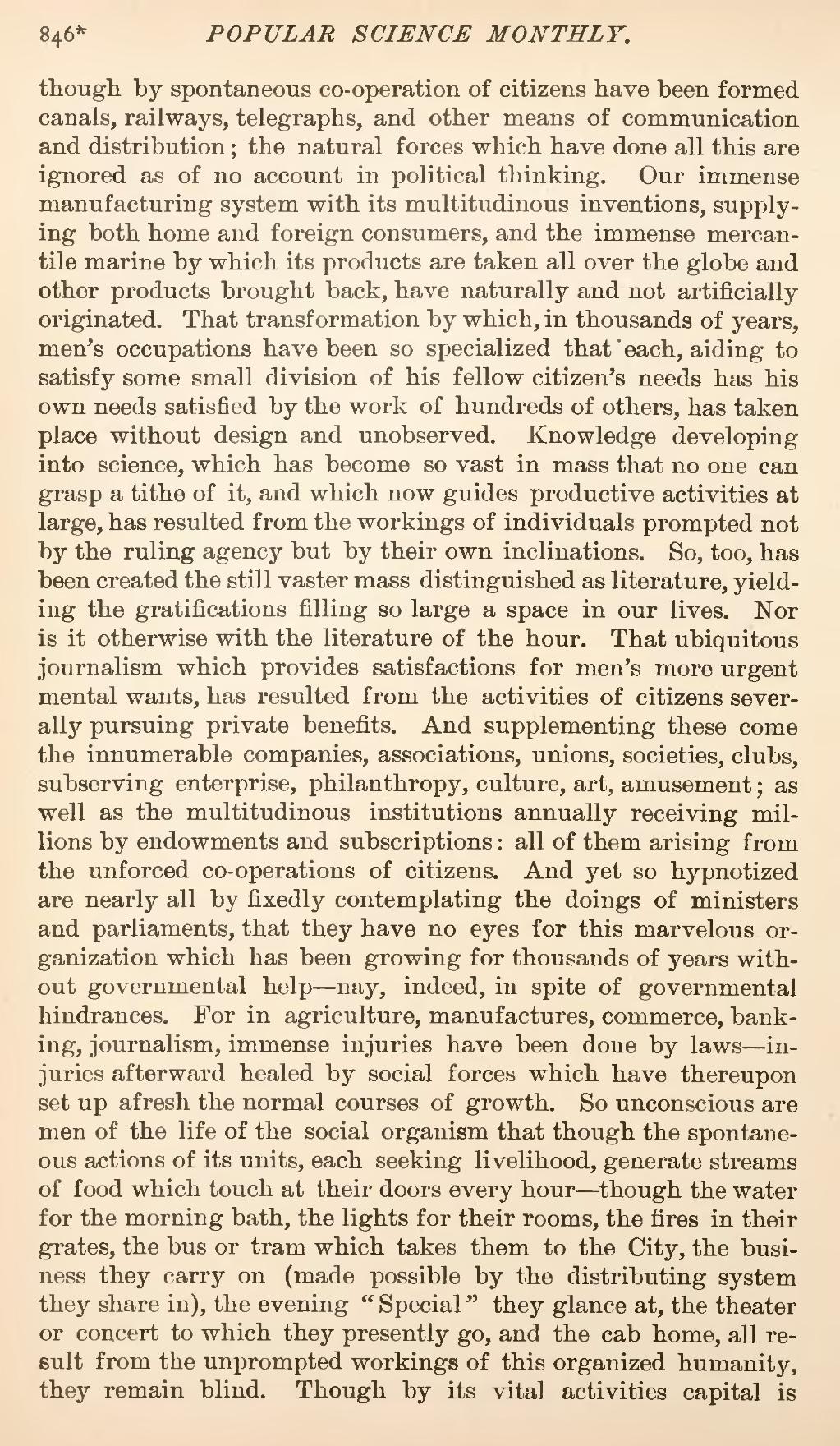though by spontaneous co-operation of citizens have been formed canals, railways, telegraphs, and other means of communication and distribution; the natural forces which have done all this are ignored as of no account in political thinking. Our immense manufacturing system with its multitudinous inventions, supplying both home and foreign consumers, and the immense mercantile marine by which its products are taken all over the globe and other products brought back, have naturally and not artificially originated. That transformation by which, in thousands of years, men's occupations have been so specialized that each, aiding to satisfy some small division of his fellow citizen's needs has his own needs satisfied by the work of hundreds of others, has taken place without design and unobserved. Knowledge developing into science, which has become so vast in mass that no one can grasp a tithe of it, and which now guides productive activities at large, has resulted from the workings of individuals prompted not by the ruling agency but by their own inclinations. So, too, has been created the still vaster mass distinguished as literature, yielding the gratifications filling so large a space in our lives. Nor is it otherwise with the literature of the hour. That ubiquitous journalism which provides satisfactions for men's more urgent mental wants, has resulted from the activities of citizens severally pursuing private benefits. And supplementing these come the innumerable companies, associations, unions, societies, clubs, subserving enterprise, philanthropy, culture, art, amusement; as well as the multitudinous institutions annually receiving millions by endowments and subscriptions: all of them arising from the unforced co-operations of citizens. And yet so hypnotized are nearly all by fixedly contemplating the doings of ministers and parliaments, that they have no eyes for this marvelous organization which has been growing for thousands of years without governmental help—nay, indeed, in spite of governmental hindrances. For in agriculture, manufactures, commerce, banking, journalism, immense injuries have been done by laws—injuries afterward healed by social forces which have thereupon set up afresh the normal courses of growth. So unconscious are men of the life of the social organism that though the spontaneous actions of its units, each seeking livelihood, generate streams of food which touch at their doors every hour—though the water for the morning bath, the lights for their rooms, the fires in their grates, the bus or tram which takes them to the City, the business they carry on (made possible by the distributing system they share in), the evening "Special" they glance at, the theater or concert to which they presently go, and the cab home, all result from the unprompted workings of this organized humanity, they remain blind. Though by its vital activities capital is
